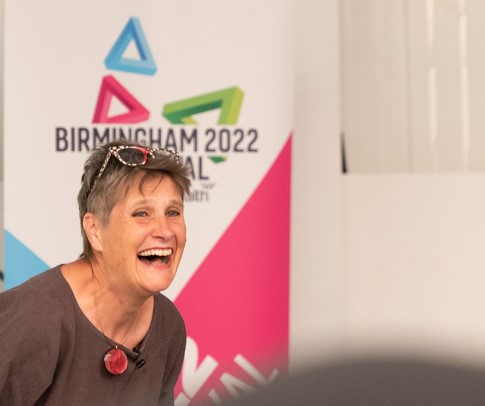It’s a little known fact that the younger adults are, the more likely they are to feel lonely. Those in the 18 to 24-year-old age group are more vulnerable to loneliness than those in any other age bracket. (48% feel lonely often compared with 25% aged over 65.)[1]
One reason is that younger people are more likely to be unemployed than older adults. The unemployment rate for 18 to 24-year-olds is 14% compared with 4.2% in the 25 to 49 bracket and 3.2% in the over 50s.[2] Rachel Green is project manager for Starting Point, a charity based in Reading, Berkshire providing mentoring and work experience to young people not in education, employment or training. She says loneliness is a pervasive issue amongst her clients.
“If you don’t get a job or go to university, you lose your peer group when you leave school and you can feel isolated very quickly. If our young people are applying for jobs, they might be getting constant rejections which can affect their self-esteem and make them feel lonely. They can then get into isolating habits like sleeping all day and being awake at night. It’s very easy to go on a downward spiral from there.”
But even young people who are surrounded by thousands of peers, like students, are vulnerable to loneliness. Kate Ward-Perkins, University of Reading Peer Support Co-ordinator, says: “Our sense of belonging comes from being known. When you arrive at university, you might be in a context where nobody knows you. That feeling of not being recognised can mean you lose your internal moorings and don’t know who you are. That’s a lonely feeling and people respond by either becoming frantically social or withdrawing.
“It’s also a time in life when the task is to separate from parents. This separation means you become more dependent on your peers for your sense of wellbeing. That can make it difficult to acknowledge your vulnerability to your peers. ‘Face’ becomes important – not losing face. There’s a tendency for young people to develop a personae that others find acceptable. It can feel very lonely behind that face.”
[1] Aviva Healthcheck UK Report p 30 (2014). Also The Lonely Society? Mental Health Foundation p 22 (2010)
[2] Labour Market Statistics, May 2015
How technology impacts on loneliness
There are mixed views on whether the technology that connects people increases or decrease loneliness. Social media can reduce isolation by making it easy to stay in touch but it can compound loneliness when it’s used as a substitute for face-to-face contact. Almost one third of 18 to 24-year-olds (31%) say they spend too much time communicating with friends and family online when they should be seeing them in person.[1]
Psychologist Dr Aric Sigman has argued that social networking sites undermine social skills.[2] Rachel Green, of Starting Point, has noticed this too. She says some young people develop relationships online around a niche interest, like Japanese movies, at the expense of face-to-face friendships. “When this happens they aren’t developing their social skills,” says Rachel. “So if they get a job and there’s a difficult situation, they might not have learnt to deal with a confrontation and they might just walk out. You learn these skills through face-to-face relationships.”
On the other hand, social media can connect people who might otherwise feel lonely. Reading University has a society called R U Not Drinking Much? for students who don’t want to get smashed. Its presence on Facebook helps students find each other before they even arrive. “I’m not a huge drinker,” posted a fresher-to-be. “I’m so glad I found this group.”
Fact file on loneliness and younger people
- More than a third (36%) of 18 to 34-year-olds worry about feeling lonely.[3]
- More than half (53%) of 18 to 34-year-olds have felt depressed because they have felt alone.[4]
- More than a quarter (27%) of 18 to 24-year-olds have suffered anxiety in the past year compared with 23% of 35 to 44-year-olds and 11% of people aged over 65.[5]
- And yet 42% per cent of 18 to 34-year-olds would be embarrassed to admit feeling lonely, compared with 23% of those aged 55 or more.[6]
[1] Griffin J, The Lonely Society? The Mental Health Foundation p 41 (2010)
[2] Sigman A, The Biological Implications of Social Networking, The Biologist Vol 56, 1 (2009)
[3] Griffin J, The Lonely Society? The Mental Health Foundation p22 (2010)
[4] Griffin J, The Lonely Society? The Mental Health Foundation p22 (2010)
[5] The Aviva Healthcheck UK Report p 29-40 (2014)
[6] Griffin J, The Lonely Society? The Mental Health Foundation p 41 (2010)
This is the fourth of a series of posts on loneliness. It is based on Loneliness Accident or Injustice by Jo Ind, a joint publication from the Diocese of Oxford (Board of Mission) and the Archway Foundation.

